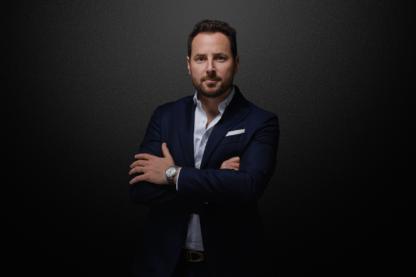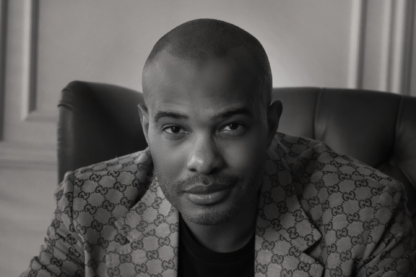Photographer: Paul Wolfgang Webster
In this exclusive interview, Alexander Chetchikov, President of the World Luxury Chamber of Commerce, sits down with Agile transformation expert Susannah Chambers to explore the evolving role of agility beyond tech teams and into luxury, education, and even personal life. With years of experience guiding organizations through Agile methodologies, Susannah shares her insights on how businesses can move beyond simply implementing frameworks and truly embed an Agile mindset. From leadership challenges to AI’s impact on the future of agility, this conversation uncovers how adaptability and innovation can redefine success across industries.
Alexander Chetchikov: Susannah, with your extensive experience in Agile approaches, what are some of the most effective ways to get teams truly engaged with Agile, rather than just following methodologies and frameworks superficially?
Susannah Chambers: At the heart of truly engaging teams on an Agile journey is embedding a culture and mindset organisationally in parallel with the day-to-day rhythm of the communication and collaboration of teams reflecting the spirit of the Agile Manifesto. The most effective way of achieving this – using Agile methodologies and frameworks as tools to optimize ways of working (rather than as an inflexible tick-list exercise) – is to empower teams to shape the way they do their work based on proactive mutual communication around what will delight customers. This, of course, is a particularly important dimension to using Agility in the luxury industry sector. It’s vital that teams are supported to demonstrate a strong connection and understanding of how the products and/or services being developed/created are going to bring value and a luxury experience to customers, as well as equipping teams with the skills to demonstrate this impact through key metrics.
Alexander Chetchikov: Change can be challenging—what is the most surprising or unexpected obstacle you’ve encountered while guiding a team through an Agile transformation?
SC: The most surprising obstacle I’ve encountered was in the first year of my career in agility and was the tendency for senior leaders to default to prescribing what agility meant to them/the organization without opening up the channels of communication with colleagues at all levels of the organization. There is such knowledge and expertise of how the work is done to create products and services by those at all levels of an organization, I have always been surprised where that doesn’t happen. It is a huge missed opportunity! There is a phrase in agility called ‘Go to the Gemba’, which originates from the Lean and Kaizen context in agility, and fundamentally is about understanding where the work happens and originates, speaking with and observing colleagues in those spaces, rather than making decisions based on assumptions. One of the aspects of my working with organizations and teams I love the most is bringing together and creating/optimizing communication and collaboration workflows between leadership and teams to enable a mutually continuous process of learning from each other.
Alexander Chetchikov: Agile principles can extend beyond the workplace—have you applied them in your personal life, and if so, what impact have they had?
SC: Yes, I most certainly have, and it’s been a very exciting and rewarding adventure doing so! There is a concept called Personal Kanban which is all about how one can apply the principles of agility to living one’s life. Through the coaching I provide (not just in agility) I often observe that what clients claim to value in life invariably does not often align with how they choose to spend their time. The insights I’ve generated through coaching clients have enabled me to reflect and be very self-aware of how I navigate my own life authentically, in a congruent fashion, and achieve what I want to in life, which has really amplified my personal brand! Applying agile principles and an agile mindset of continuous improvement, inspecting, and adapting has led me to explore opportunities I would never have opened myself up to – including my very unique career portfolio – unless I’d been prepared to prioritize around what matters to me in life.
Alexander Chetchikov: Agile is the go-to method for tech teams, but what about other industries? Have you seen Agile work its magic in unexpected places, and how can non-tech teams make the most of it?
SC: I got involved in the world of Agility through the unconventional – yet exhilarating – route of introducing, implementing, and embedding Agile frameworks and methodologies (and the corresponding required cultures and mindsets) in organizations that had absolutely no experience or knowledge of Agility and the business value and competitive edge it would bring them.
For example, my first 3 contexts for introducing Agile transformations were in education, construction, and eco-housing. None of those organizations had any prior experience working Agile and yet it absolutely proved possible for non-tech teams to work more productively and generate value for their organizations as a result of it. Non-tech teams are actually no less well-placed to adopt Agile ways of working than tech/software development teams, even though the origins of Agility are best known in that context. This is because there can be a tendency to focus on the tooling side of implementing agility, whereas at the heart of the most agile teams are behaviors focused on iterative improvement, reducing time to market, and delighting customers, all of which require a willingness to be customer-centric and collaborate well, with a relentless commitment to refining the quality of products and adapting to customer needs. That is a universal competitive edge to companies, whether they comprise tech and/or non-tech teams.
Alexander Chetchikov: What emerging trends or innovations do you believe will have the biggest impact on Agile’s future?
SC: Artificial Intelligence (AI) is already making a significant impact on Agile’s future and is almost inevitably going to do so in the future. However, not in the way that one might expect me to predict… it’s clear that with AI comes huge opportunities for automation of tasks and workflows. However, anybody who has ever worked in a high-performing team and experienced the ‘flow’ that emerges when a team is really aligned on delighting their customers that they care about having an amazing experience knows that the experience their customers get is not just from the timely delivery of a product or the quality of the product. Particularly in the luxury brand industry, it is about the customer experience of the entire journey end-to-end of a product or service being designed. My view is that whatever transformation AI brings for Agile’s future as long as we have human customers, and however realistic the attempted interactions through mimicking human behaviors might be (for example, with the introduction of AI coaches) I believe that human customers are going to want to feel valued by humans who create bespoke, luxury experiences for them in a way that no technological simulation is ever going to fully capture. In an agile context, technology absolutely has its place as part of exciting developments. However, so too does humanity and I am full of anticipation to see how humanity and technology will blend in the future to supercharge the potential of agility even further.
Thank you, Susannah!
As the conversation with Susannah comes to an end, one thing is clear—Agility is more than just a methodology; it’s a mindset that can transform teams, industries, and even personal lives. From breaking down communication barriers in leadership to embracing AI without losing the human touch, Susannah’s insights offer a fresh perspective on what it truly means to be agile. As businesses continue to evolve in an era of rapid change, this expertise serves as a powerful reminder that agility isn’t just about speed—it’s about continuous learning, adaptability, and delivering value where it matters most.
To gain more insights into the luxury industry, visit our expert articles and interviews: https://worldluxurychamber.com/category/expert-articles-interviews/





